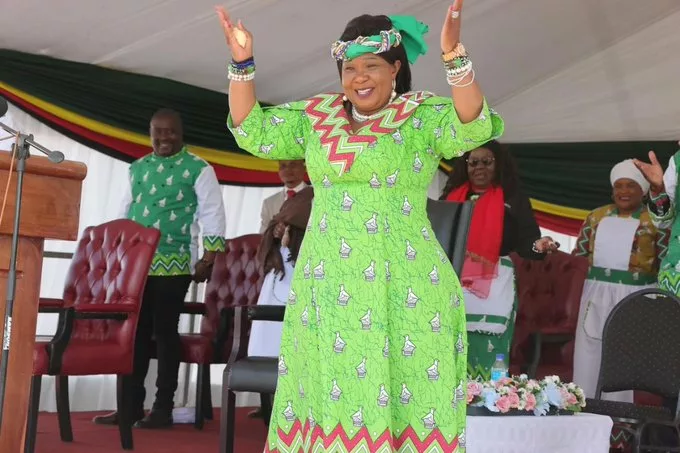|
Getting your Trinity Audio player ready...
|
By Edward Major Kuyipa and Shamiso Mupeto-Yadyo
Zimbabwe is a country where the fight for gender equality is at war with systemic and endemic societal barriers, including traditional and faith-based taboos and widespread ignorance about sexual reproductive health and rights, despite concerted efforts by the Government of Zimbabwe and its partners including non-governmental organisations. This ignorance mainly in men is due to patriarchal system perceptions.
Period poverty remains a pivotal challenge for girls in rural Zimbabwe. As access to menstrual hygiene products becomes increasingly limited. The repercussions are extremely serious, leading to significant rates of school dropouts, teenage pregnancies, and child marriages.
The roots of period poverty in rural Zimbabwe are many. According to a recent study by Plan International, approximately 60 percent of girls in rural areas miss school during their menstrual cycle due to a lack of access to sanitary products and medication for period pain, medically known as dysmenorrhea.
Many of these girls travel long distances—up to several kilometres—just to access water, making their circumstances even more precarious. Each trip away from home increases the risk of sexual harassment and violence, and many families do not consider access to menstrual products as a human right.
“Societal attitudes often dictate that menstruation is merely a ‘female problem’ instead of a public health issue,” red flags the Gender Commission. “It’s critical for communities to view menstruation challenges through the lens of human rights and gender equity. Every girl deserves dignity and the right to manage her menstruation without fear or barriers.”
The economic situation compounds these obstacles, as poor families often prioritize immediate needs over menstrual health. Zimbabwe should worry about 37 percent of its girls dropping out of school entirely as they lack dignity due to having no proper menstrual sanitary wear or suffering due to period pain. In addition, they also have pressures to marry or bear children early. During the COVID-19 pandemic, reports show that early pregnancies among girls aged 15-19 rose by 1 percent from 2019 to 2021, highlighting the urgent need for intervention.
In response to these challenges, the Ministry of Primary and Secondary Education has launched initiatives aimed at improving access to menstrual hygiene management in schools. “We are implementing educational programs that focus on menstrual health and hygiene,” said Minister of Primary and Secondary Education, Hon. Dr. Evelyn Ndlovu. “By equipping schools with sanitary products and promoting awareness, we hope to empower our girls to stay in school.”
Traditional leaders, or chiefs, also play a vital role in combating period poverty. Chiefs are encouraged to conduct community awareness programs addressing both menstruation and the importance of girls’ education.
“It starts with us, as traditional leaders, to change the narratives in our communities,” stated a local chief. “Our wives and families must also be educated so that we can foster supportive environments for our daughters.”
Amai Auxilia Mnangagwa, the First Lady of Zimbabwe and a prominent advocate for women’s rights has actively engaged in campaigns centered on women’s sexual and reproductive rights. Her initiatives aim at both raising awareness and providing resources to ensure that girls do not feel ashamed of menstruation. “We must empower girls and women by breaking the silence surrounding menstrual health,” she emphasised.
“Every girl should have the resources she needs to thrive.”
As the challenges of period poverty grow amidst economic hardship, societal attitudes, and traditional barriers, community support and international assistance have never been more crucial. Organizations like Musasa Projects strive to provide education on menstrual health, revealing that educational outreach has reduced school absenteeism significantly in areas where these programs have been implemented.
“Every month, more than two billion people around the world menstruate. Menstruation – or period – is a natural and healthy process, yet millions of women and girls cannot afford menstrual products or access to safe water and sanitation to manage their menstrual health and hygiene. This interrupts their lives, rights, and freedoms,” says UN Women Africa.
Period poverty refers to the inability to afford and access menstrual products, sanitation and hygiene facilities, and education and awareness to manage menstrual health. Simply put, period poverty costs women and girls too much and it doesn’t have to be this way.
The urgency to tackle period poverty in rural Zimbabwe is palpable. By breaking these barriers, the country could not only improve education outcomes for girls but also pave the way for a more equitable future. It is time for collective action – for the sake of its girls; it’s time to prioritize their health, education, and empowerment.
Edward Major Kuyipa is a Gender Activist and journalist. Shamiso Mupeto-Yadyo is a teacher at a faith-based organisation; a girl child mentor and is involved in menstrual health activities in Mount Darwin.






